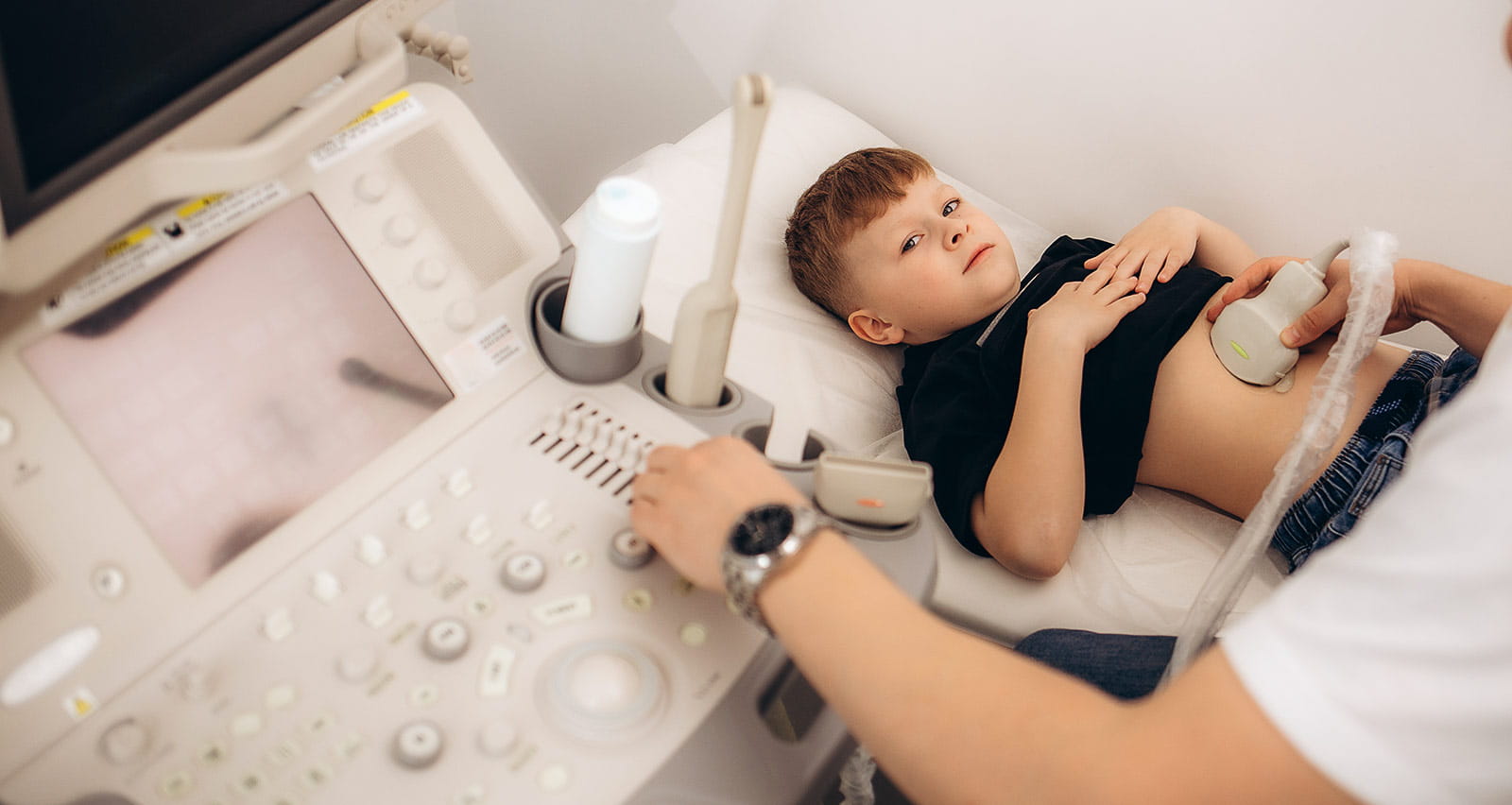
Megaureter in Children
Megaureter is a condition in which one or both of a child’s ureters are wider than normal. The ureters are tubes that carry urine from the kidney to the bladder. When a ureter is abnormally large, it may not function properly and can cause problems such as infections or kidney damage. The pediatric urologists at UH Rainbow Babies & Children’s have the experience and expertise to diagnose and treat megaureter in children of all ages.
Make an Appointment with a Pediatric Urologist
To learn more about our pediatric urology services or to make an appointment, please call 216-844-5661.
Schedule OnlineWhat Are the Causes of Megaureter?
A megaureter can form while a baby is developing in utero. There are four main causes of megaureter:
- Obstruction: There is a blockage stopping urine from entering the bladder.
- Vesicoureteral reflux (VUR): Urine backs up into the kidneys, widening the ureter.
- Both obstruction and reflux
- Neither obstruction nor reflux (dilation only)
Megaureter occurs when a section of the ureter that is normally a muscular layer of tissue is replaced by stiff, fibrous tissue, or when the mechanism that joins the ureter and bladder isn't working properly. This prevents peristalsis, the process that sends urine down the ureter to the bladder.
A normal ureter under ultrasound test is about 3-5 millimeters in diameter, while a megaureter may be more than 7-8 mm.
Megaureter Symptoms
Not all children with megaureter experience the same symptoms, and some symptoms can be mistaken for other conditions, so a diagnosis is critical to getting proper care. Some of the most common symptoms include:
- Blood in the urine (hematuria)
- Fever
- Loss of bladder control (urinary incontinence or enuresis)
- Not able to pass much urine
- Pain or burning when urinating
- Urinary tract infection (UTI)
Possible complications of megaureter include:
- Vesicoureteral reflux
- Recurrent UTIs
- Kidney damage
- Kidney failure
Megaureter Diagnosis
Megaurter is often diagnosed during a prenatal ultrasound. If it is not caught in utero, babies may begin to experience symptoms associated with megaureter after birth. Older children may experience UTIs that lead to a megaureter diagnosis.
To diagnose megaureter, your child’s healthcare provider will conduct a physical exam and ask questions about your child’s symptoms and medical history. In addition, they may perform some other tests to learn more information. These can include:
- Blood and urine tests: These are done to check for UTI and check your child's electrolytes and kidney function.
- Ultrasound: This procedure uses sound waves to look at the kidneys, bladder and other internal organs.
- Voiding cystourethrogram (VCUG): A catheter is placed through your child’s urethra into the bladder, slowly filling the bladder with a solution. A special machine called fluoroscopy takes pictures. The test can determine if any of the solution is going back up into the kidneys.
- MAG3 renal scan: A special solution called an isotope is injected into the veins through an intravenous line. The isotope makes it possible to see the kidneys clearly on X-ray. This study can determine how each kidney is functioning and whether there is a blockage.
- Computed tomography (CT) scan: This imaging test uses a series of X-rays to form detailed pictures of the abdomen and kidneys.
- Magnetic resonance urography (MRU): This radiation-free test uses magnetic resonance imaging (MRI) technology to create detailed pictures of the kidneys, ureters and bladder.
Megaureter Treatment
Treatment for your child’s megaureter will depend on many factors, including their symptoms, age and severity of the condition. In some cases, a megaureter doesn't need specific treatments, only requiring a follow-up with the urology team.
Treatment can include antibiotics to treat or prevent UTIs. If there is a blockage, your child may need surgery to remove the abnormal part of the ureter and establish normal urine flow.
Your child’s provider will work with your family to explore the available treatment options and determine which is right for your child’s unique case.
Learn More About Our Pediatric Urology Program
To learn more about our pediatric urology services, please call 216-844-5661.


